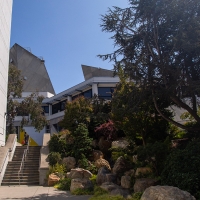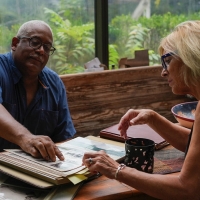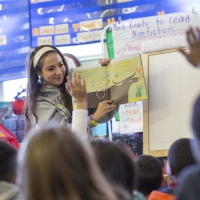Student’s documentary helps her family heal from intergenerational trauma
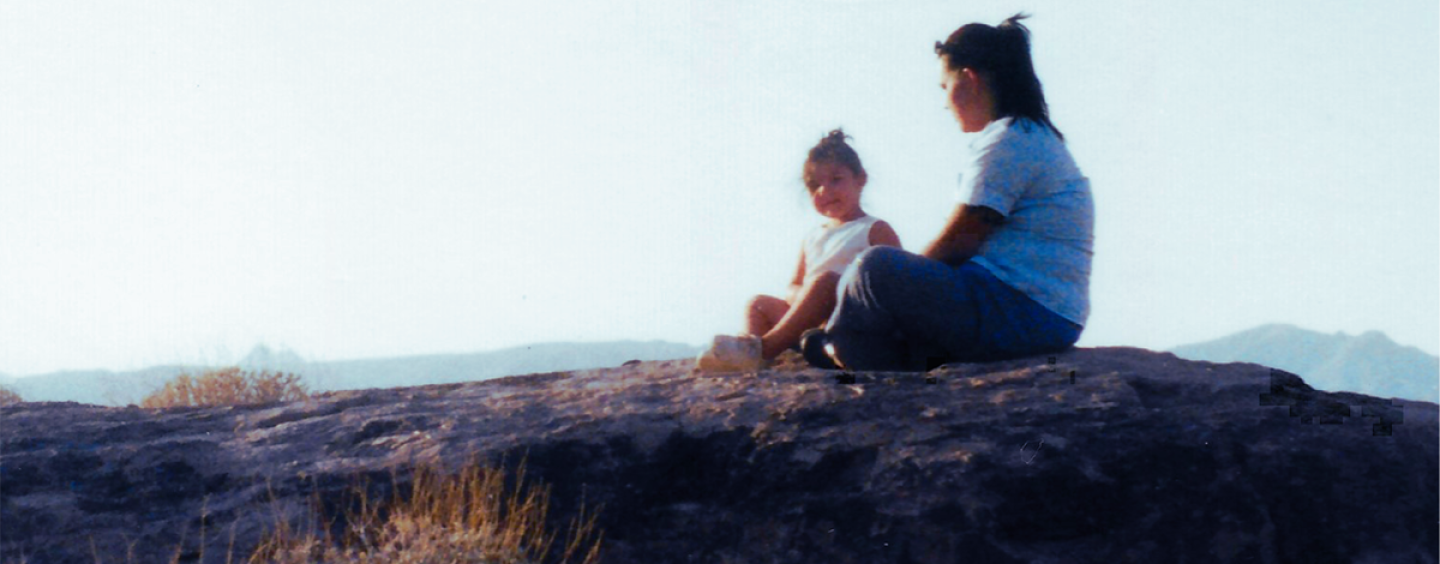
Cecilia Mellieon and her daughter sit outdoors at Fortaleza Indian Ruins, homeland of their ancestors, near the Tohono O’odham Nation’s San Lucy Village outside of Gila Bend, Arizona. Photo from 2001.
Grad student Cecilia Mellieon utilizes visual anthropology, a field of study founded at SF State, to tell stories of urban Native American life
With a video camera in her hands and empathy in her heart, one San Francisco State University student is focusing her capstone project on a subject many families prefer to avoid: their intergenerational trauma.
Cecilia Mellieon, a graduate student in Anthropology at San Francisco State, is the director of a documentary titled “He told us the sky is blue.” It traces her family’s trauma to Native American oppression, focusing on the Indian boarding school her father attended in Fort Apache, Arizona.
“If it hadn’t been for his experience there, he would have never left his family or his village,” said Mellieon, a member of the Tohono O’odham Nation. “He would have never moved to the Bay Area, and so I would not even be here if it wasn’t for him making those decisions to get away from them.”
The U.S. government established the boarding schools to teach English and trade skills to Native American children. Violent corporal punishment occurred often.
“The ultimate goal was to have fully assimilated second-generation children — children who were removed from their lands, children who didn’t grow up with their culture or their language or their family members,” Mellieon said.
In her 55-minute film, Mellieon’s family recalls surviving an abusive household. They share feelings of sadness and regret as they also work to resolve their anger.
“These are stories that I know too well, because I was there,” Mellieon said. “There are scenes where my brother and my mom are breaking down crying. I was crying with them.”
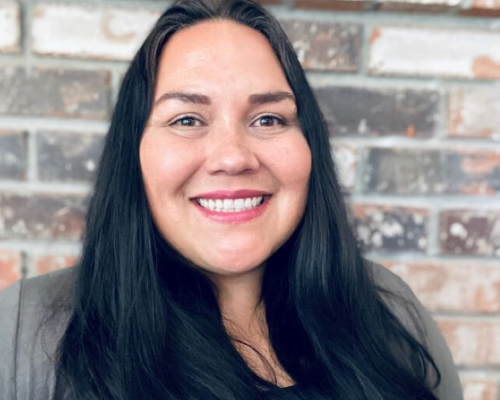
Born and raised in San Francisco, Mellieon is passionate about telling stories of urban Native American life with nuance and sensitivity. She uses a supportive, collaborative approach that aims to not only create an ethnography, but also a work that will benefit the subjects.
Her approach is an application of visual anthropology, a field of study that was founded by late SF State faculty members John Adair and John Collier. SF State Anthropology Professor Peter Biella (B.A., ’72; M.A., ’75) was one of Collier’s students, and today he is Mellieon’s adviser.
Mellieon entered SF State as an undergraduate in 2018 at age 42. She had just completed her associate’s degree from Los Medanos College while her third child had yet to start kindergarten.
A new Bay Area Rapid Transit (BART) extension to near her home in Antioch made the 50-mile commute to SF State feasible, with family help on child care. Now, one of her children, Tatihn Mellieon, also attends SF State, as a Creative Writing major and a student assistant in The Poetry Center.
“It was the perfect grouping of coincidences that led to me to be able to go to State,” Cecilia Mellieon said. “If I had tried this at any other point in my life, I don’t think I would have had the life experiences. I don’t think I would have had the growth that I needed to be a confident student and be able to feel like I could tackle this.”
Mellieon premiered “He told us the sky is blue” in November at Los Medanos College. She plans to take it to film festivals and make more anthropological films about big-city Indigenous life.
Tags

